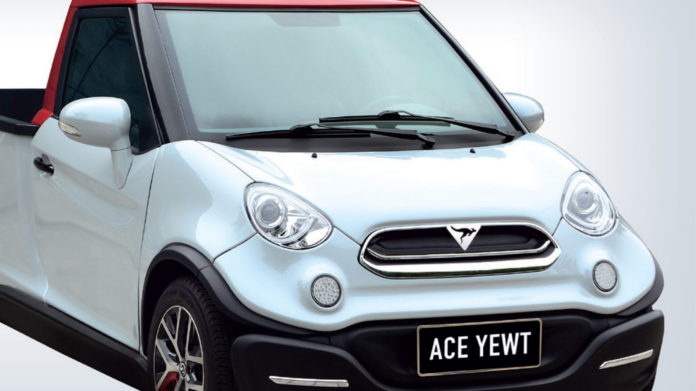Australian startup ACE EV has unveiled their plans for Australian-manufactured electric cars, made from imported flat-pack vehicle kits.
From 2019-2020 there was a 40 per cent increase in global sales of electric vehicles. As the electric vehicle market continues to grow Greg McGarvie and his international team from ACE EV have created a flat-pack model starting from $29,000.
“Think of it as a fancy IKEA pack,” says Mr McGarvie. “It’s assembled here in Brisbane, just in an ordinary workshop.”
A former marine biologist, McGarvie’s passion for electric vehicles comes from a concern for the future of the environment, saying we have to be more careful for the sake of future generations.
“Everything we do – from pollution to fossil fuels – impacts our oceans,” he says. “If we keep going down this track, it will make it so difficult for our grandchildren to live on this earth.”
Related: “Are small businesses the key to our COVID recovery?”
McGarvie has worked with technology partner Gerhard Kurr, who previously helped design the Mercedes Benz Smart Car in 2000. They have fast-tracked the design of a lightweight carbon-fibre reinforced plastic monocoque that is at the core of ACE-EV vehicles.
The vehicles are made from composite material which is 2-3 times stronger than steel. They are made up of a 14-part ”skeleton” and a 58-part “skin”. The vehicles weigh under 1000kg.
“Most vehicles nowadays are made from 2000 parts,” says Mr McGarvie. “The fact ours is made from only 72 makes it much less expensive and much more reliable.”
In early 2020 Morrison government promised a national electric vehicle strategy would be finalised by the middle of the year, but the policy has been delayed. The prime minister, Scott Morrison, last year accused Labor of forcing people out of four-wheel drives after the opposition set a target of 50 per cent of new car sales being electric by 2030.
Mr McGarvie says currently ACE-EV’s biggest hurdle moving forward is difficulty acquiring funding, which is exacerbated by the lack of support from the Australian government.
“This whole process of getting these vehicles manufactured has been slowed down by disinterest from the government, which in turn has a huge impact on our foreign investors,” he says. “They look at Australia, and say “Where’s the interest in EV’s here?””
Once enough capital has been raised, ACE EV will then start wide-scale manufacturing with the vehicles being sold commercially shortly after.
Keep up to date with our stories on LinkedIn, Twitter, Facebook and Instagram.

